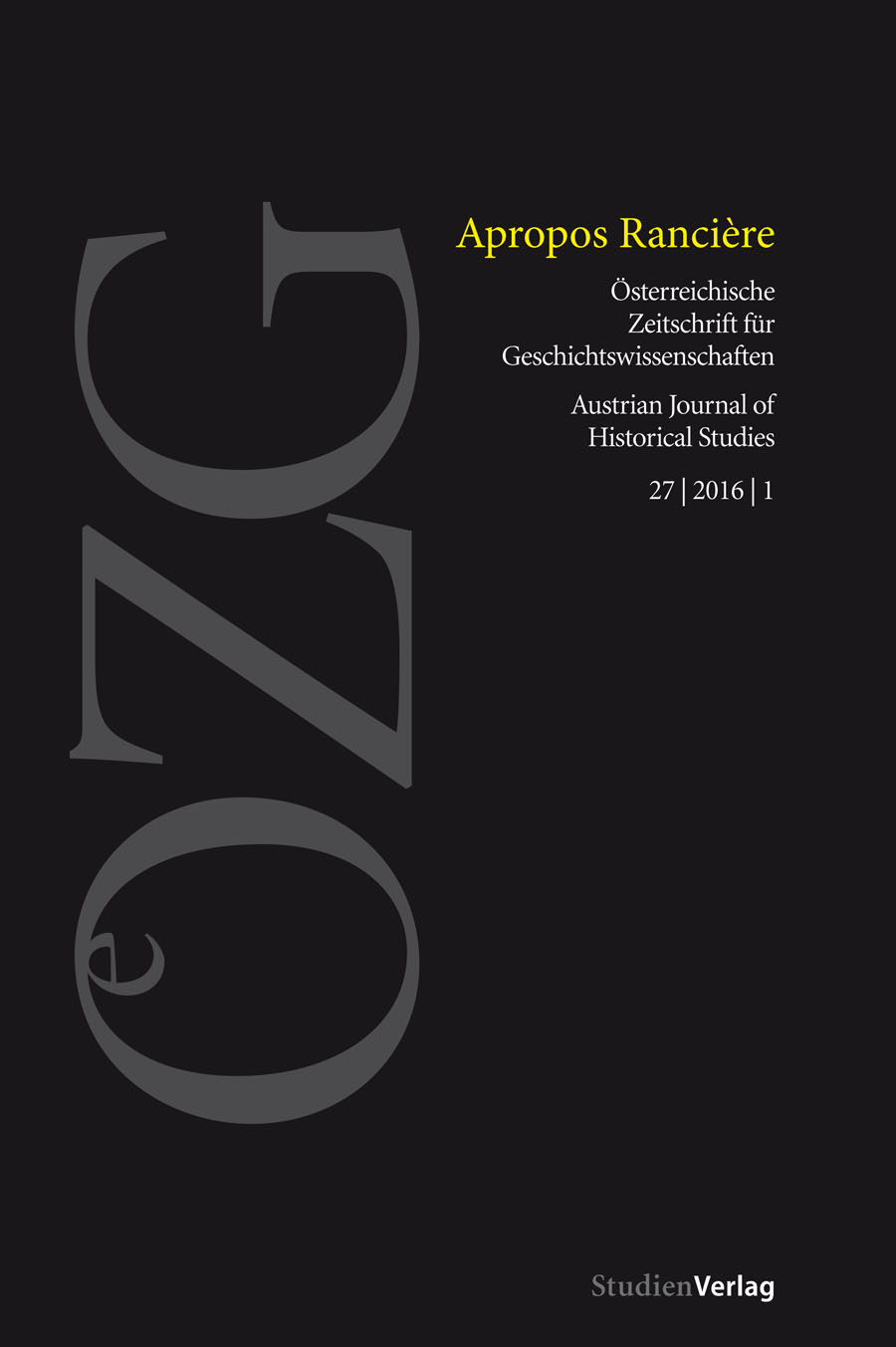Geschichte(n) erzählen
Zum Geflecht von Literatur und Geschichte bei Jacques Rancière
DOI:
https://doi.org/10.25365/oezg-2016-27-1-15Abstract
There is a transhistoric dimension in Rancière’s oeuvre that claims a capacity of the people to use speech and words for their emancipatory and thus political purposes. People are able to make history because they are “literate” beings. But history as history and as historiography alike is also a key element in his thought of the literate and political being in so far as it has a historic dimension, has itself a history. The turning point in the history of his- toriography is the revolution of literature, which changes completely the relationship between acting and telling stories, between what is worthy to narrate and what is a story. In the 18th century the revolution of literature is a condition for scientific historiography. Rancière’s own historiography of 19th century workers tries to put forward another kind of historiography that does not reduce the event and the new to its historical conditions, refusing the expression-model of modern historiography.


